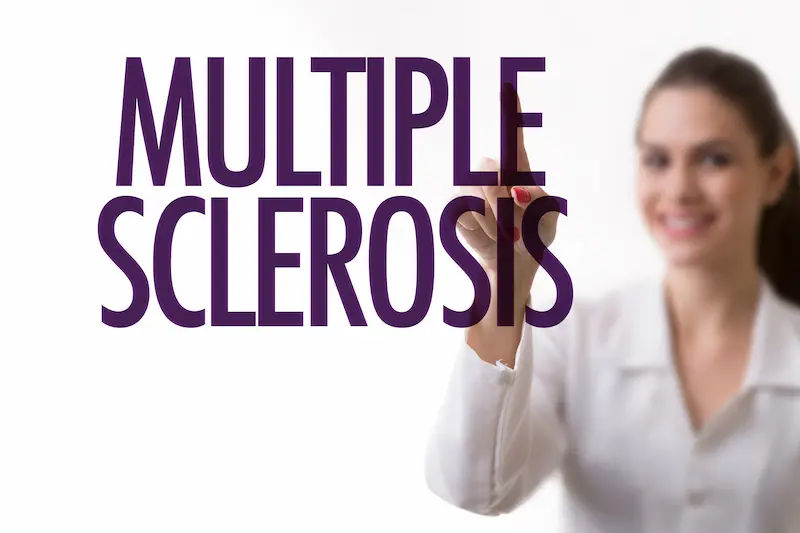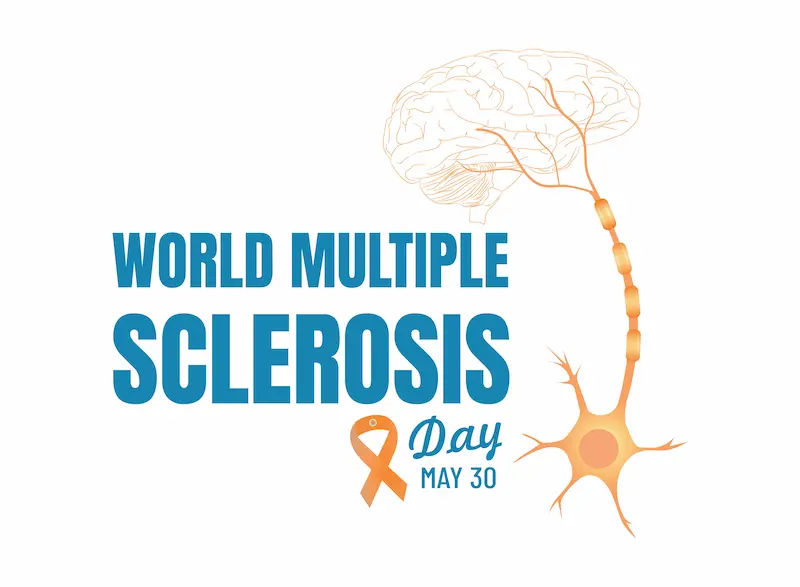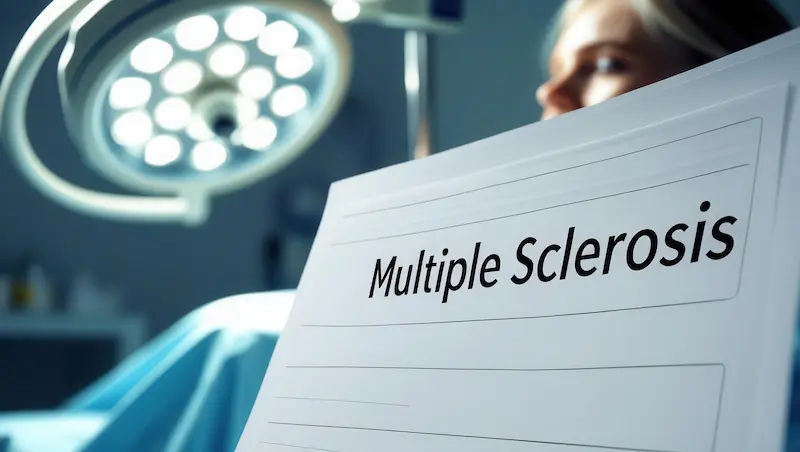Living a Normal Life with Multiple Sclerosis: Your Guide to Thriving
Living a normal life with multiple sclerosis is possible with the right medical care, lifestyle choices, and emotional support. Explore practical strategies for thriving despite MS.

Written by Dr. Shaik Abdul Kalam
Reviewed by Dr. Rohinipriyanka Pondugula MBBS
Last updated on 13th Jan, 2026

Introduction
Receiving a multiple sclerosis diagnosis can feel overwhelming, often accompanied by questions about the future and what a "normal life" even means. The good news is that the landscape of MS has transformed dramatically. Today, living a normal life with multiple sclerosis is not just a possibility; it is an achievable goal for many. This normalcy is not about ignoring the condition but about effectively managing it to pursue your passions, maintain relationships, and find fulfilment.
This comprehensive guide will walk you through essential strategies—from cutting-edge medical treatments to lifestyle adjustments—that empower you to take control. We'll explore how to build a resilient mindset, adapt your daily habits, and access the right support to not just live with MS, but to thrive despite it.
Redefining "Normal" with Multiple Sclerosis (MS)
The first step towards thriving with MS is shifting your perspective. "Normal" no longer means a life completely free of medical considerations. Instead, it means a life that is rich, purposeful, and adapted to your needs. It’s about finding a new rhythm that incorporates management strategies without letting them define you.
What Does a Fulfilling Life with MS Look Like?
A fulfilling life with MS is unique to each individual. For some, it is continuing a demanding career with accommodations. For others, it is dedicating more time to family, hobbies, or advocacy. The common thread is focusing on abilities rather than disabilities. It involves setting realistic goals, celebrating small victories, and understanding that some days will be better than others—and that is okay.
The Pillars of Effective MS Management
Thriving with MS rests on four key pillars: medical treatment to slow disease progression, symptom management to improve daily quality of life, healthy lifestyle choices to support overall well-being, and emotional support to maintain mental health. Neglecting any one pillar can make the structure unstable. A holistic approach is your strongest defence.
Consult Top Specialists for Personalised Tips
Building Your Medical Defence: Treatment and Monitoring
Modern medicine offers powerful tools to manage MS. Proactive and consistent medical care is the cornerstone of living well.
The Role of Disease-Modifying Therapies (DMTs)
DMTs are breakthrough medications designed to reduce the frequency and severity of relapses and slow the development of new brain lesions. Since their introduction, they have fundamentally changed the MS prognosis. Options include injections, infusions, and oral medications. Working with a neurologist to find the right DMT for your specific type of MS (e.g., relapsing-remitting, primary progressive) is the most critical decision you can make. These treatments help create a stable platform on which you can build your life.
Managing Specific MS Symptoms
Beyond DMTs, specific symptoms can be targeted effectively:
Fatigue: Energy-conservation techniques, medications like Amantadine, and occupational therapy.
Spasticity: Muscle relaxants and physical therapy.
Pain: Neuropathic pain can be treated with certain antidepressants or anticonvulsant medications.
Bladder/Bowel Issues: Managed with medication, dietary changes, and scheduled routines.
If symptoms persist or significantly impact daily life, you can consult a doctor online with Apollo24|7 for evaluation and a tailored management plan.
The Importance of Regular Neurological Check-ups
Consistency is key. Regular MRI scans and clinical evaluations allow your neurologist to track disease activity and adjust your treatment plan proactively. For routine monitoring and blood tests required for some DMTs, Apollo24|7 offers convenient home collection services, reducing the stress of travel.
Empowering Yourself Through Lifestyle Choices
Daily habits have a profound impact on how you feel. Lifestyle medicine is a powerful complement to medical treatment.
1. Nutrition and Diet for Multiple Sclerosis
While no single "MS diet" is proven to cure the disease, an anti-inflammatory approach is widely recommended. Diets like the Mediterranean diet, which is rich in fruits, vegetables, whole grains, fish, and healthy fats, can help reduce fatigue and support overall health. Staying hydrated and ensuring adequate vitamin D levels is also important. Some find benefits in reducing processed foods and saturated fats.
2. The Power of Physical Activity and Exercise
Exercise is vital for managing MS fatigue, improving strength, balancing mood, and maintaining mobility. It promotes cardiovascular health and may even support neuroplasticity, the brain's ability to adapt and rewire.
Recommended Exercises for MS Patients:
Water Aerobics: Buoyancy supports weak limbs and allows movement without overheating.
Yoga and Stretching: Improves flexibility, balance, and reduces spasticity.
Strength Training: Builds muscle to support joints and daily tasks.
Walking or Cycling: Excellent for cardiovascular health, especially on cooler days or indoors.
3. Prioritising Sleep and Fatigue Management
Poor sleep exacerbates MS fatigue. Prioritising sleep hygiene—a cool, dark room, consistent bedtime, and limiting screens before bed—is essential. Listening to your body and scheduling rest breaks throughout the day, often called "pacing," is a strategic tool, not a sign of defeat.
4. Mastering Stress Reduction Techniques
Stress can trigger MS relapses and worsen symptoms. Practices such as mindfulness, meditation, deep-breathing exercises, or hobbies can lower stress and improve quality of life.
Your Mindset Matters: Mental and Emotional Well-being
MS is as much a psychological journey as a physical one. Protecting mental health is essential.
1. Overcoming the Fear of Progression
The uncertainty of MS can lead to anxiety about the future. Cognitive-behavioural techniques (CBT) can help manage these fears, allowing you to focus on the present and what you can control today.
2. The Value of Therapy and Support Groups
You do not have to face MS alone. Therapists specialising in chronic illness and MS support groups provide coping strategies, reduce isolation, and offer practical advice.
Conclusion
Living a normal life with multiple sclerosis is a journey of adaptation, resilience, and empowerment. It requires a proactive partnership between you, your healthcare providers, and your support network. By embracing advanced medical treatments, committing to healthy lifestyle choices, and nurturing mental and emotional well-being, you can build a life not defined by MS but enriched by the strength discovered in managing it.
Progress is measured in small, consistent steps. Focus on what you can influence and never underestimate your capacity to create a fulfilling life. Start today by implementing one positive change from this guide, and consult a neurologist online with Apollo24|7 for personalised support.
Consult Top Specialists
Consult Top Specialists for Personalised Tips

Dr. Uddalak Chakraborty
Neurologist
8 Years • MBBS, MD(GENL.MED.),DM(NEUROLOGY)
Kolkata
MCR SUPER SPECIALITY POLY CLINIC & PATHOLOGY, Kolkata

Dr. Uddalak Chakraborty
Neurologist
8 Years • MBBS,MD(GENL. MED.),DM(NEUROLOGY)
Kolkata
VDC Clinic, Kolkata
(25+ Patients)

Dr. Ganeshgouda Majigoudra
Neurologist
10 Years • MBBS, MD ( GENERAL MEDICINE) DM (NEUROLOGY)
Bengaluru
Apollo Clinic, JP nagar, Bengaluru

Dr. Avinash Gupta
Neurologist
12 Years • MBBS, DNB - Neurology
Bilaspur
Apollo Hospitals Seepat Road, Bilaspur
(150+ Patients)

Dr. Aditendraditya Singh Bhati
Neurosurgeon
21 Years • MBBS(2004), DNB Neurosurgery(2014); MNAMS; Fellow Skull Base Endoscopy (Italy), Fellow Extended Skull Base ( Weill Cornell, USA), Fellow ZAP-X Radiosurgery. Member of American Association of Neurological Surgeons
Delhi
Apollo Hospitals Indraprastha, Delhi
(100+ Patients)
Consult Top Specialists

Dr. Uddalak Chakraborty
Neurologist
8 Years • MBBS, MD(GENL.MED.),DM(NEUROLOGY)
Kolkata
MCR SUPER SPECIALITY POLY CLINIC & PATHOLOGY, Kolkata

Dr. Uddalak Chakraborty
Neurologist
8 Years • MBBS,MD(GENL. MED.),DM(NEUROLOGY)
Kolkata
VDC Clinic, Kolkata
(25+ Patients)

Dr. Ganeshgouda Majigoudra
Neurologist
10 Years • MBBS, MD ( GENERAL MEDICINE) DM (NEUROLOGY)
Bengaluru
Apollo Clinic, JP nagar, Bengaluru

Dr. Avinash Gupta
Neurologist
12 Years • MBBS, DNB - Neurology
Bilaspur
Apollo Hospitals Seepat Road, Bilaspur
(150+ Patients)

Dr. Aditendraditya Singh Bhati
Neurosurgeon
21 Years • MBBS(2004), DNB Neurosurgery(2014); MNAMS; Fellow Skull Base Endoscopy (Italy), Fellow Extended Skull Base ( Weill Cornell, USA), Fellow ZAP-X Radiosurgery. Member of American Association of Neurological Surgeons
Delhi
Apollo Hospitals Indraprastha, Delhi
(100+ Patients)
More articles from Multiple Sclerosis
Frequently Asked Questions
Can you live a full life with multiple sclerosis?
Yes. Most people with MS have a normal or near-normal life expectancy. Modern treatments focus on quality of life, enabling careers and relationships.
What is the best diet for someone with MS?
An anti-inflammatory approach, such as the Mediterranean diet, is recommended. Emphasise fruits, vegetables, whole grains, fish, and healthy fats while minimising processed foods.
How can I manage overwhelming MS fatigue?
Prioritise sleep hygiene, practice energy conservation, engage in regular moderate exercise, and discuss medication options with your doctor.
Is it safe to exercise with MS?
Yes. Tailored exercise improves strength, balance, mood, and fatigue. Key activities include swimming, yoga, and walking, while avoiding overheating.
How do I deal with the emotional impact of an MS diagnosis?
Seek support from a mental health professional, join an MS support group, and practise stress-reduction techniques. Building an emotional toolkit is essential for long-term well-being.




